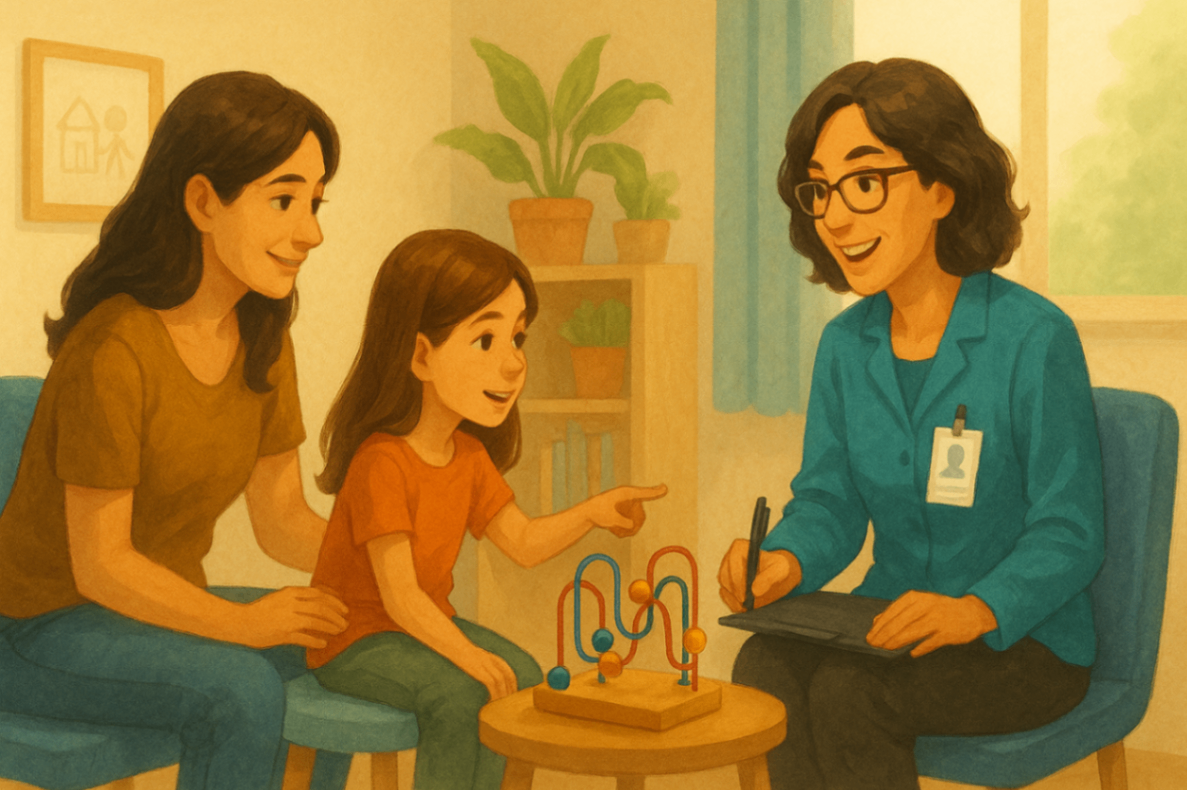
what does a positive behaviour support practitioner do?
24 June, 2025

Key Highlights
-
AA behaviour support practitioner develops strategies to address challenging behaviours and improve the individual's quality of life through positive behaviour support interventions.
-
They utilise an individualised behaviour support plan to manage behaviours of concern and promote effective communication and social skills.
-
Their objective includes reducing or eliminating restrictive practices and creating supportive environments at home, school, or community settings.
-
Practitioners work under the guidelines of the NDIS and must meet the suitability standards outlined in the PBS capability framework.
-
Collaboration with the support network, including family members and carers, is integral to ensuring long-term success.
Introduction
A behaviour support practitioner works hard to improve the quality of life for individuals with challenging behaviours. They use positive behaviour support techniques to understand the root causes of behaviours and develop strategies that are personalised and effective.
These professionals don’t just help individuals—they support families and carers too. Their goal is long-term improvement through a caring, inclusive approach. Whether you're working with a qualified behaviour therapist or a PBS provider in Liverpool, their support is designed to create calm, structured, and respectful environments. If you're wondering how a positive behaviour support practitioner can help your child or family, this guide will explain their role and impact.
Need support managing behaviours of concern? Book your appointment now with an NDIS behaviour support practitioner at our Liverpool clinic.
Understanding Behaviour Support Plans and the Role of Practitioners
 A behaviour support plan is the main tool used by a behaviour support practitioner. It provides clear, personalised steps to manage behaviours of concern, strengthen communication, and foster independence.
A behaviour support plan is the main tool used by a behaviour support practitioner. It provides clear, personalised steps to manage behaviours of concern, strengthen communication, and foster independence.
An NDIS behaviour support practitioner conducts behaviour support assessments—like functional behaviour assessments—drafts the support plan, and ensures the interventions align with the PBS capability framework. This helps to reduce restrictive practices and enhance wellbeing.
By working with a qualified behaviour therapist, families gain access to practical strategies that are both evidence-based and person-centred.
What is a Behaviour Support Plan?
A behaviour support plan is tailored to help manage behaviours that impact daily life, incorporating behaviour support strategies. It includes proactive techniques to reduce challenges and build on strengths, improving communication, social skills, and daily functioning.
The plan is created collaboratively—between the individual, family, carers, teachers, and the NDIS behaviour support practitioner. This shared input strengthens the plan’s effectiveness and usability.
When built on positive behaviour support principles, the plan prioritises the person’s dignity, safety, and participation in their community. It is a core offering from any trusted PBS provider in Liverpool who works within the NDIS framework.
What Does a Positive Behaviour Support Practitioner Do for Families in Liverpool?
A positive behaviour support practitioner in Liverpool helps families manage complex behaviours. They focus on both the individual and the wider support system—families, carers, and support workers—to ensure everyone has the tools to create meaningful change.
These professionals analyse behavioural patterns and underlying causes. Their support replaces restrictive approaches with strategies that promote empowerment, emotional regulation, and respectful communication. When working with a PBS provider in Liverpool, families benefit from targeted interventions delivered by an NDIS behaviour support practitioner who understands the local context and community resources.
Learn how our team builds family-centred strategies in: Why NDIS Behaviour Support Should Include Parent Coaching
A Beginner’s Guide to Creating a Behaviour Support Plan
 Creating an effective plan begins with identifying the triggers behind challenging behaviour. A qualified behaviour therapist typically leads this assessment, using tools such as functional behaviour assessments and interviews with the individual’s support network.
Creating an effective plan begins with identifying the triggers behind challenging behaviour. A qualified behaviour therapist typically leads this assessment, using tools such as functional behaviour assessments and interviews with the individual’s support network.
From there, the team develops a tailored approach. It’s essential to align strategies with positive behaviour support models and ensure the practitioner meets NDIS standards.
Whether you’re working with a local PBS provider in Liverpool or a national service, collaboration and customisation are key to long-term success.
What You’ll Need to Get Started
To become or work with an NDIS behaviour support practitioner, understanding the positive behaviour support capability framework is vital. This framework outlines the skills required to ethically and effectively manage behaviours of concern.
Before developing a plan, build a strong support network—family members, carers, and educators. Guidance from a qualified behaviour therapist can ensure the plan is person-centred and goal-driven. Support from the National Disability Insurance Scheme (NDIS) and an experienced positive behaviour support practitioner will help deliver meaningful improvements in quality of life.
How Behaviour Support Plans Are Developed
The planning process begins with an in-depth assessment by a positive behaviour support practitioner. This includes identifying triggers, understanding behavioural patterns, and setting measurable goals. From there, strategies are built around positive behaviour support principles. These may include reinforcing desirable behaviours, teaching new skills, and adjusting environments to reduce triggers. Regular reviews with your NDIS behaviour support practitioner ensure the plan remains relevant and effective. If you're in the Liverpool area, connecting with a trusted PBS provider in Liverpool offers the advantage of localised support and tailored resources.
See how we personalise support plans for different needs: How Behaviour Support Is Personalised for Every Child Under the NDIS
Conclusion
Understanding the role of a positive behaviour support practitioner can empower families and carers to take confident steps in supporting individuals with behavioural challenges. From crafting detailed plans to working closely with the support network, a qualified behaviour therapist delivers meaningful, person-first solutions that improve daily life. Whether you’re seeking help through the NDIS or a local PBS provider in Liverpool, engaging a dedicated NDIS behaviour support practitioner is a proactive step toward creating a calm, respectful, and empowered home environment.
Book your consultation now to speak with a certified practitioner about how behavioural therapy can support your family’s goals.
Frequently Asked Questions
Who is a behaviour support practitioner?
A behaviour support practitioner is a trained professional who helps create plans to manage behaviours of concern. Often registered with the NDIS, they aim to improve the person’s quality of life through evidence-based interventions like positive behaviour support and must complete an NDIS behaviour support practitioner application to ensure their qualifications.
How do I choose the right behaviour support specialist?
Look for a qualified behaviour therapist with experience relevant to your needs. Make sure they’re familiar with the PBS capability framework and NDIS standards. You can also consult with local services, such as a PBS provider in Liverpool.
Are NDIS behaviour support practitioners certified in PBS?
Yes, NDIS behaviour support practitioners are assessed for their ability to deliver positive behaviour support using the PBS capability framework. Certification ensures they follow ethical and effective standards in behaviour management.
How do I find a qualified behaviour therapist in Liverpool?
Start by checking if the professional is a registered NDIS Behaviour Support Practitioner and meets the Positive Behaviour Support (PBS) suitability criteria under NDIS guidelines. This ensures they are trained to deliver evidence-based, person-centred support for children with behaviours of concern.
For families in Liverpool, it’s essential to choose a provider who not only understands NDIS processes but also has proven experience working with children and tailoring behaviour support plans that involve families, educators, and allied health teams.
daar is a trusted NDIS provider in Liverpool offering comprehensive Specialised Behaviour Support services for children. Our team includes qualified Behaviour Support Practitioners who:
-
Conduct Functional Behaviour Assessments (FBAs)
-
Develop individualised PBS plans
-
Offer in-clinic and telehealth support
-
Provide ongoing parent coaching and progress monitoring
We collaborate closely with families, schools, and carers to ensure every plan is practical, culturally sensitive, and aligned with your child’s NDIS goals.
.svg)

















